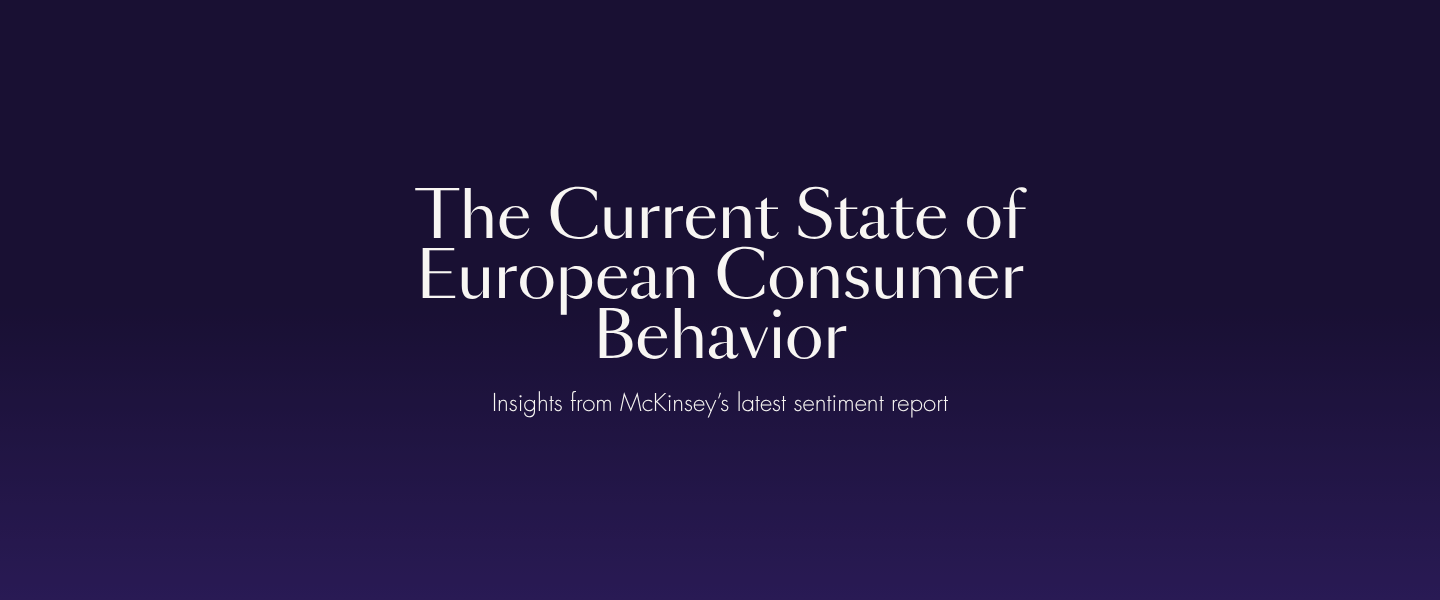
McKinsey’s recent analysis of European consumer sentiment reveals a set of behavioral shifts that are neither dramatic nor uniform but are highly relevant for business leaders managing complex portfolios, multi-market operations, or consumer-facing strategy.
Across regions, sentiment is stabilizing. Income, savings, and spending levels have remained consistent since early spring. Inflation, though still present, appears less dominant in the minds of consumers. And while optimism hasn’t surged, neither has pessimism deepened, offering a more predictable backdrop than recent years have allowed.
Here are the most relevant patterns emerging from the data:
Across most European markets, consumer sentiment is holding steady or improving marginally. Income, savings, and spending behaviors are consistent with recent quarters. Spain, Italy, and Portugal show the strongest optimism. The UK, by contrast, has seen a decline. The Netherlands sits closer to the median, marked by caution, not contraction.
Inflation remains the top concern, but its grip is loosening. Only 11% of European consumers rank tariffs as a top-three issue, compared to 35% in the United States, highlighting both regional resilience and a difference in macroeconomic exposure.
Strategic View: Forecasting should be recalibrated around normalized, moderate behavior rather than assumed recovery. Market-by-market differentiation is essential. The risk is less about decline and more about missing the nuance.
Intentions to spend on non-essentials remain mixed. Vehicle spending is softening. Apparel, beauty, and home goods remain stable but unremarkable. Meanwhile, travel, particularly flights, hotels, and cruises, is seeing incremental growth.
Consumers are not retreating from discretionary spending; they’re allocating it more carefully. Experiences with personal or emotional utility continue to attract spend.
Strategic View: Prioritize offerings with a clear role in consumers’ lives. In restrained environments, relevance is more important than novelty.
Across Europe, trading down has become normalized. Consumers are switching to private-label goods, reducing quantities, or changing retailers—not necessarily because they have to, but because they choose to reallocate. The behavior is especially pronounced among Gen Z, with 92% in the UK engaging in some form of trade-down, but similar patterns are observed across age groups and markets.
Strategic View: Assortment strategy should be revisited. Premium brands may require tiered offerings or entry points that preserve positioning. Economical choices must maintain a clear quality narrative to retain relevance.
Roughly a third of consumers have changed brands in the past three months. While cost remains a factor, convenience, availability, and user experience are becoming equally decisive. Many aren’t abandoning brands, they’re reassessing them.
Strategic View: Retention now relies on frictionless engagement. Availability and ease of access are no longer differentiators, they’re minimum standards.
Roughly 37% of European consumers intend to “splurge” in the coming quarter. Travel and dining remain the most cited categories, with apparel and footwear gaining traction among Gen Z. Splurging has become more outcome-driven, focused on rest, experience, or personal reward.
Strategic View: Non-essential does not mean irrelevant. In a cautious environment, indulgent categories must articulate value beyond the product itself. The framing matters: time saved, energy restored, quality of life enhanced.
McKinsey’s report outlines an environment of restrained confidence and sharper discernment. Europe’s consumers aren’t static, they’re adapting with intention. The question isn’t when behavior will return to pre-crisis norms. It’s how to operate within this more calibrated state of demand.
What matters now is precision. Geography, category, and context all influence decision-making in ways broad trends no longer fully explain. Markets are not in flux but expectations are. The organizations that succeed in this climate will be those that interpret subtle signals and move with specificity.
The Full Mckinsey Article
An update on European consumer sentiment: Outlook holds, despite dismay abroad – June 2025